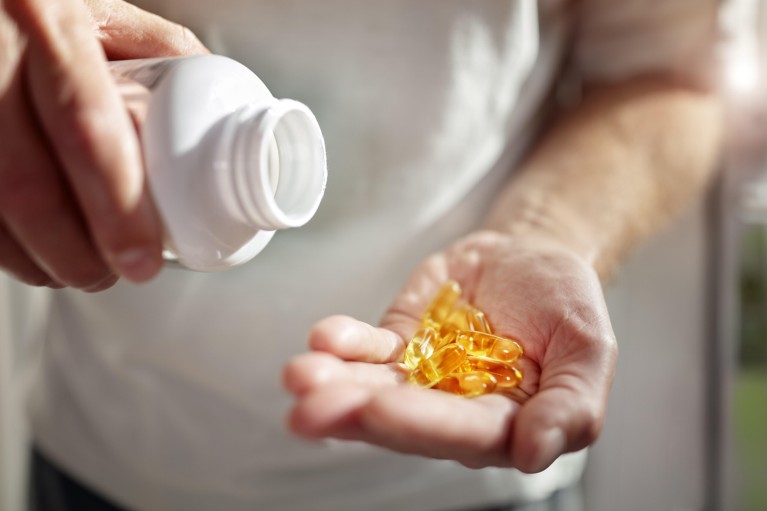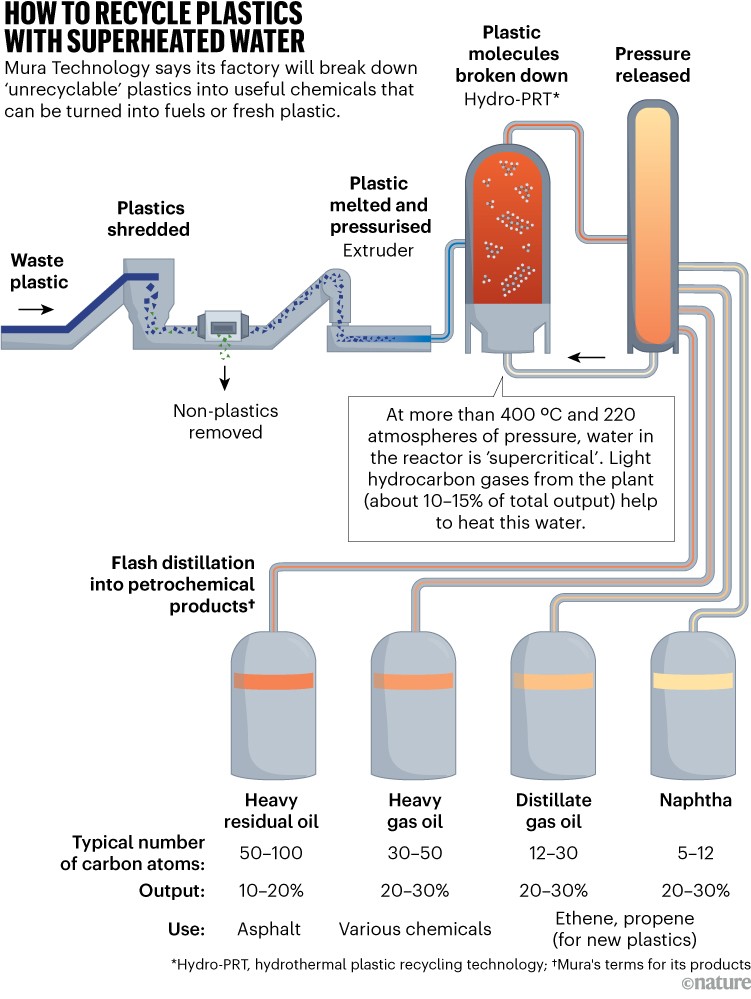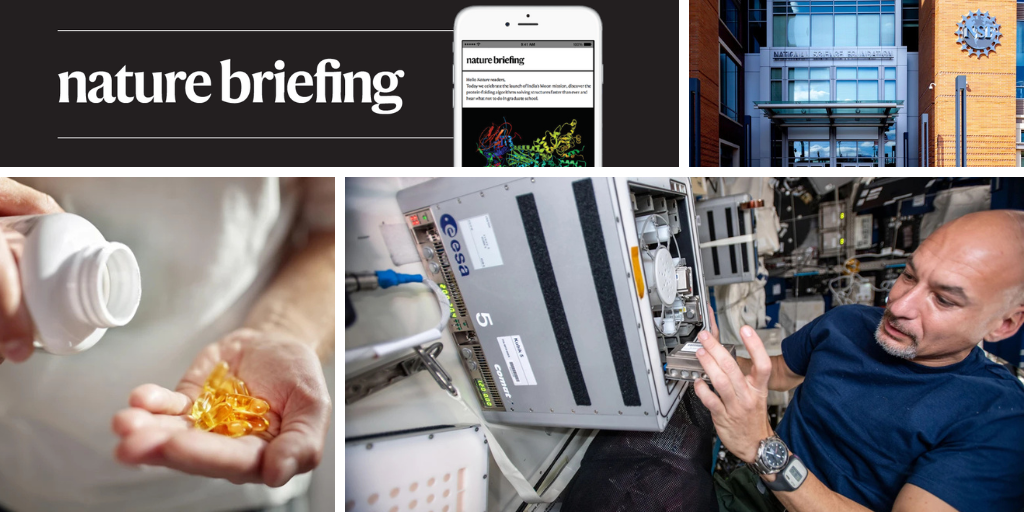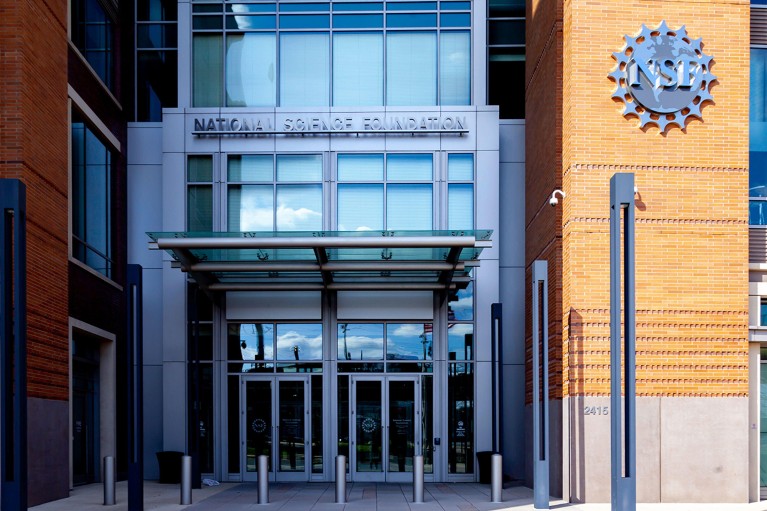Hello Nature readers, would you like to get this Briefing in your inbox free every day? Sign up here.

Omega-3 supplements have been shown to reduce the risk of falls and frailty in older people.Credit: Brian Jackson/Alamy
Omega-3 and vitamin D supplements, taken over the course of years, might slow biological ageing, according to a new study. Results of a trial of people aged over 70 showed that a combination of the two supplements daily and 30 minutes of exercise three times a week over three years reduced biological ageing — ageing measured at a molecular level — by three to four months. The reduction sounds small, but can translate to important public-health benefits such as a reduction in the prevalence of some age-related health conditions, says clinician-scientist Heike Bischoff-Ferrari.
Reference: Nature Aging paper
Scientists have unveiled a ‘mini’ version of the CRISPR-Cas9 gene-editing technology that can fit inside an adeno-associated virus (AAV), a vector often used to deliver gene therapy. The CRISPR machinery, particularly the 1,300 amino acid-strong Cas9 enzyme, is bulky, which can make it difficult to transport in the body. The scaled down version swaps Cas9 out for ‘NanoCas’, a DNA-snipping enzyme made of around 900 fewer amino acids. The team found that, packaged inside an AAV, the mini CRISPR successfully reached and edited genes in liver and heart tissue in mice, and skeletal muscle and heart tissue in macaque monkeys.
Reference: bioRxiv preprint (not peer reviewed)
Features & opinion
The further humanity goes into space, the more stuff we’ll need to take, which becomes both a practical and financial problem. One idea is not to ship things at all, and instead use microbes to make the materials missions need as they go, and to recycle waste. On Earth, microbes can synthesize medications, produce structural material from waste and provide crops with nutrients. But to use them in space, scientists have to work out how these species will behave in a totally new environment. “Doing microbiology in space is 100% nothing like what you’ve done in your lab,” says microbiologist Cheryl Nickerson. “It’s not even close.”
Romance and relationships are central to the human experience — but they can make getting funding harder than usual, say scientists in the field. “The federal agencies are often worried about the word ‘sex’,” says evolutionary biologist Justin Garcia. There can also be wry downsides to working in a field that almost everyone’s interested in. A coffee invite from a distinguished colleague prompted thoughts of a fruitful collaboration for Garcia, but “within two minutes, she took out her phone, turned it to face me and said, ‘Can you help me with my dating profile?’”
Infographic of the week

Source: Mura Technology
Later this year, operations will begin in a chemical plant that can, in theory, take any kind of plastic waste and break it down into chemicals that are similar to those extracted from crude oil. With further processing, these chemicals can be turned back into fresh plastic. If it works, the process could represent ‘circular manufacturing’, in which plastic is used and reprocessed over and over again — potentially curbing the world’s dependence on fossil resources to make virgin plastics. (Nature | 15 min read)



